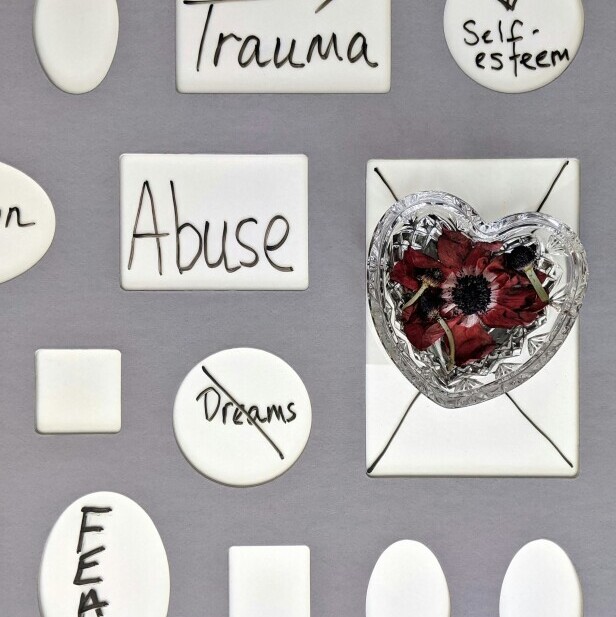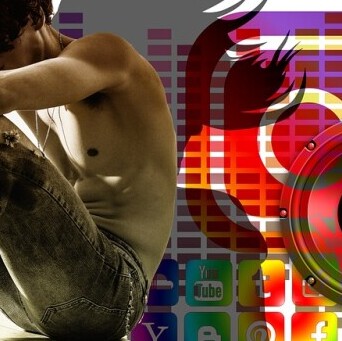The Dark Side of the Internet
Negative Impact on Mental Health
The internet, a vast and intricate web of information and connectivity, has revolutionized how we communicate, learn, and interact with the world.
However, beneath its surface lies a darker realm that poses significant risks to individuals and society. This darker side encompasses a range of issues, from cyberbullying and online harassment to the pervasive influence of social media on mental health.
As we navigate this digital landscape, it is crucial to recognize the potential dangers that lurk within and the profound impact they can have on our lives.
The anonymity afforded by the internet can lead to behaviours that individuals might not exhibit in face-to-face interactions. This disconnection from reality can embolden users to engage in harmful activities, creating an environment where negativity and hostility thrive.
The consequences of these actions can be devastating, affecting not only the victims but also the perpetrators and the broader community. Understanding these issues is essential for fostering a safer online environment and promoting healthier interactions in our increasingly digital world.

Cyberbullying and Online Harassment
Cyberbullying has emerged as a pervasive issue in the digital age, affecting individuals across various age groups, particularly adolescents.
Unlike traditional bullying, which often occurs in physical spaces like schools or playgrounds, cyberbullying can happen anywhere and at any time, thanks to the omnipresence of smartphones and social media platforms.
Victims may find themselves targeted through hurtful messages, social media posts, or even the dissemination of private information without consent.
The anonymity provided by the internet can embolden bullies, making it easier for them to inflict emotional pain without facing immediate repercussions.
The psychological impact of cyberbullying can be profound and long-lasting. Victims often experience feelings of isolation, anxiety, and depression, which can lead to severe consequences such as self-harm or suicidal ideation.
A study published in the journal "JAMA Psychiatry" found that adolescents who experienced cyberbullying were significantly more likely to report mental health issues compared to their peers who had not been bullied.
This highlights the urgent need for awareness and intervention strategies to combat cyberbullying and support those affected by it. Online harassment extends beyond the realm of bullying, encompassing a broader spectrum of abusive behaviours that can target individuals based on their identity, beliefs, or personal circumstances.
This form of harassment can manifest in various ways, including hate speech, doxxing (the act of publicly revealing private information), and threats of violence.
The consequences of such harassment can be devastating, leading to a climate of fear and anxiety for those targeted. For instance, women and marginalized groups often face disproportionate levels of online harassment, which can deter them from participating in public discourse or pursuing careers in fields like technology and politics.

Social Media and Mental Health
The rise of social media has transformed how we connect with others, but it has also raised significant concerns regarding its impact on mental health.
Platforms like Facebook, Instagram, and Twitter provide users with a constant stream of curated content that can create unrealistic expectations about life and success.
The phenomenon of "social comparison" is prevalent on these platforms; users often compare their lives to the seemingly perfect lives portrayed by others.
This can lead to feelings of inadequacy, low self-esteem, and even depression. Research has shown a correlation between heavy social media use and increased rates of anxiety and depression among young people.
A study conducted by the Royal Society for Public Health in the UK found that platforms like Instagram and Snapchat were associated with higher levels of anxiety and poor body image among users.
Constantly exposing idealized images can distort perceptions of reality, making individuals dissatisfied with their lives.
Furthermore, the addictive nature of social media can exacerbate these feelings, creating a vicious cycle where users seek validation through likes and comments while simultaneously feeling worse about themselves. Moreover, social media can also serve as a breeding ground for misinformation and negative discourse.
The spread of false information regarding mental health issues can perpetuate stigma and discourage individuals from seeking help.
For example, sensationalized portrayals of mental illness in memes or viral posts can trivialize severe conditions, leading to misunderstandings about their nature and treatment.
This misinformation can create barriers for those struggling with mental health issues, making it more difficult for them to access appropriate resources and support.

Internet Addiction and its Effects
Internet addiction has emerged as a significant concern in today's digital society, characterized by excessive use of online resources that interferes with daily life.
Individuals may find themselves compulsively checking emails, scrolling through social media feeds, or engaging in online gaming for hours.
This compulsive behaviour can lead to neglect of responsibilities, strained relationships, and a decline in overall well-being.
The World Health Organization has even recognized "gaming disorder" as a mental health condition, highlighting the seriousness of this issue. The effects of internet addiction are multifaceted and can manifest in various ways.
Physically, excessive screen time can lead to issues such as eye strain, poor posture, and disrupted sleep patterns.
Psychologically, individuals may experience heightened levels of anxiety when they are unable to access the internet or when they are offline for extended periods.
This dependency on digital connectivity can create a sense of isolation when individuals prioritize online interactions over face-to-face relationships.
As a result, many may find themselves trapped in a cycle where they seek solace in the virtual world while simultaneously feeling increasingly disconnected from reality.
Furthermore, internet addiction can have detrimental effects on academic performance and career prospects. Students who spend excessive time online may struggle to focus on their studies or complete assignments on time.
In professional settings, employees may find their productivity hampered by constant distractions from notifications or the urge to check social media during work hours.
This not only affects individual performance but can also have broader implications for workplace dynamics and organizational success.
Exposure to Graphic and Disturbing Content
The internet is replete with graphic and disturbing content that can have profound effects on viewers' mental health. From violent videos to explicit imagery, exposure to such material can desensitize individuals to real-world violence and suffering.
Research indicates repeated exposure to graphic content can lead to increased aggression and diminished empathy towards others.
This phenomenon raises ethical questions about the responsibility of content creators and platforms to regulate what is shared online.
Moreover, individuals who inadvertently encounter disturbing content may experience significant psychological distress. For instance, witnessing graphic violence or traumatic events can trigger symptoms akin to post-traumatic stress disorder (PTSD), including flashbacks, anxiety attacks, and emotional numbness.
The accessibility of such content means that even young children are at risk of exposure, which can have lasting effects on their development and understanding of violence.
The normalization of graphic content in online spaces also poses challenges for mental health professionals who work with individuals affected by trauma or violence.
Therapists may find it increasingly difficult to address these issues when clients have been exposed to a barrage of disturbing imagery that shapes their perceptions of reality.
As society grapples with these challenges, it becomes imperative to advocate for responsible content-sharing practices and promote digital literacy among users.
The Role of Online Communities in Mental Health Issues
Online communities have become vital spaces for individuals seeking support for mental health issues.
These virtual environments allow people to connect with others who share similar experiences or struggles, providing a sense of belonging that may be difficult to find in their immediate surroundings.
Forums dedicated to mental health topics enable users to share their stories, seek advice, and offer support to one another.
However, while these communities can foster connection and understanding, they also carry risks that must be acknowledged.
One significant concern is the potential for echo chambers within online communities where negative thoughts or harmful behaviours are reinforced rather than challenged.
For example, forums focused on eating disorders may inadvertently promote unhealthy behaviours by glorifying restrictive diets or self-harm as coping mechanisms.
In such cases, individuals may find themselves trapped in cycles of negativity that hinder their recovery rather than facilitate healing.
Additionally, while anonymity can provide comfort for those sharing sensitive information about their mental health struggles, it can also lead to misinformation being disseminated within these communities.
Users may encounter unverified advice or harmful suggestions that could exacerbate their conditions rather than help them find effective coping strategies.
Mental health professionals emphasize the importance of seeking evidence-based treatment rather than relying solely on peer support from online communities.
While the internet offers numerous benefits for communication and connection, it is essential to remain vigilant about its darker aspects.
Cyberbullying, social media's impact on mental health, internet addiction, exposure to graphic content, and the dynamics within online communities all contribute to a complex landscape that requires careful navigation.
By fostering awareness and promoting healthy online behaviours, we can work towards creating a safer digital environment that supports mental well-being rather than undermining it.
Join FREE & Launch Your Business!
Exclusive Bonus - Offer Ends at Midnight Today
00
Hours
:
00
Minutes
:
00
Seconds
2,000 AI Credits Worth $10 USD
Build a Logo + Website That Attracts Customers
400 Credits
Discover Hot Niches with AI Market Research
100 Credits
Create SEO Content That Ranks & Converts
800 Credits
Find Affiliate Offers Up to $500/Sale
10 Credits
Access a Community of 2.9M+ Members
Recent Comments
5
See more comments
Join FREE & Launch Your Business!
Exclusive Bonus - Offer Ends at Midnight Today
00
Hours
:
00
Minutes
:
00
Seconds
2,000 AI Credits Worth $10 USD
Build a Logo + Website That Attracts Customers
400 Credits
Discover Hot Niches with AI Market Research
100 Credits
Create SEO Content That Ranks & Converts
800 Credits
Find Affiliate Offers Up to $500/Sale
10 Credits
Access a Community of 2.9M+ Members

A study by the Royal Society for Public Health showed Instagram and Snapchat can impact anxiety and body image. If you're experiencing this, I suggest checking out https://snapchat.pissedconsumer.com/customer-service.html for helpful customer support and tips. That site offers useful info to better understand and manage your Snapchat experience.